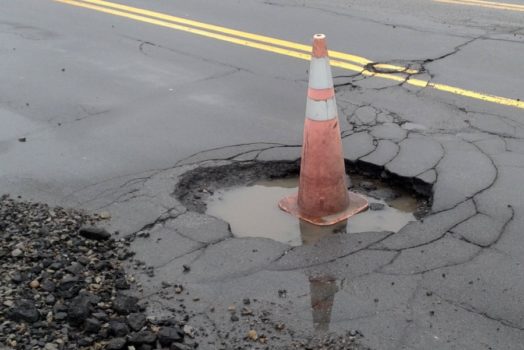By RICK BRUNDRETT
The S.C. Department of Transportation wants approval to spend about $139 million more in state gas-tax-hike money for next fiscal year, though the agency as of October was sitting on a $955 million cash surplus generated from the revenues.
DOT’s annual budget request, submitted by agency head Christy Hall to the state Department of Administration, also designates $360 million in federal coronavirus-relief funding to speed up widening of Interstate 26 between Columbia and Charleston, plus earmarks another $300 million in federal American Rescue Plan Act funds and state surplus dollars to help construct Interstate 73 from I-95 to U.S. 501.
In addition, DOT is requesting $100 million in state funding as a required match for future “substantial discretionary” grants under the recently passed federal Infrastructure Investment and Jobs Act, which will increase DOT’s federal revenues by more than $250 million annually over the next five years, according to the budget request.
DOT continues, however, to make slow progress on fixing state-maintained roads with state gas-tax-hike revenues. The Nerve’s latest review of agency records found that through Oct. 31, the total value of completed repaving or road reconstruction projects in the state’s 46 counties remained stuck at 46% of the estimated cost of all such projects – more than four years after the gas-tax-hike law took effect.
Through October, the state had collected a total of $2.19 billion under the law, which took effect July 1, 2017, though DOT hadn’t spent $955.1 million, or 43.4%, of deposits to the “Infrastructure Maintenance Trust Fund,” DOT and state comptroller general records show. Collections through Oct. 31 were $111.6 million more than the total estimated cost of project “commitments” identified by DOT.
To put the $955.1 million cash surplus into perspective, it’s more than this fiscal year’s total budgets of nearly all state agencies – excluding DOT, which has a $2.53 billion budget for the fiscal year that started July 1.
As of Oct. 31, DOT had completed $731.8 million in “pavements” projects statewide, which represented 46.1% of the total $1.58 billion estimated cost of all such projects, The Nerve’s latest review found. The overall completion rate was nearly the same compared to Sept. 30 and has been stuck in the mid-40% range for most of the year.
Twenty-six of the state’s 46 counties fell below the 50% mark, including the larger counties of Charleston, Greenville, Horry and Richland, The Nerve’s review found. Twenty-seven counties showed no change from Sept. 30.
Even if DOT completed all of the 5,235 miles of identified “pavements” projects statewide as of Oct. 31, that number would represent less than 16% of the overall number of miles of roads that the agency says have to be resurfaced or reconstructed.
DOT has said that 80% of the state’s approximately 42,000 miles of roads need to be repaved or rebuilt, and identified 465 out of 750 “structurally deficient” bridges to be replaced.
In passing the gas-tax-hike law, lawmakers promised that the money would be used to fix the state’s crumbling roads and bridges. The law raised the state gasoline tax by 12 cents per gallon over six years – a 75% jump from the base 16 cents – and increased other vehicle taxes and fees.
The Nerve in September reported that the American Society of Civil Engineers gave the state’s roads a “D” grade in its annual infrastructure report card. The Nerve also revealed that month, based on a review of DOT records, that major repaving or road reconstruction projects in the state could take on average at least a year and possibly more than two years to complete.
In its budget request for the fiscal 2022-23 year, DOT wants authorization to spend an additional $138.6 million in gas-tax-hike revenues in “anticipation for planned road projects,” which weren’t specified in the request.
Agency records show that as of Oct. 31, the agency had designated $272 million of those revenues, which represented 13% of the estimated cost of total project “commitments,” for interstate widenings – not for repaving or reconstruction projects.
The late Sen. Hugh Leatherman, R-Florence – the longtime Senate Finance Committee chairman who died last month – created a special Senate panel in 2019 to study accelerating interstate expansion.
DOT’s latest budget request will be used by Gov. Henry McMaster, who has publicly supported widening I-26 and constructing I-73 with federal coronavirus-relief funds, to draft his state spending plan for fiscal 2022-23. The House and Senate next year will each pass their own state budget versions; a final legislative version will go to McMaster for consideration of vetoes.
This fiscal year’s total state budget, which includes federal, state and “other” funds, is more than $32.3 billion.
Brundrett is the news editor of The Nerve (www.thenerve.org). Contact him at 803-254-4411 or rick@thenerve.org. Follow him on Twitter @RickBrundrett. Follow The Nerve on Facebook and Twitter @thenervesc.
Nerve stories are free to reprint and repost with permission by and credit to The Nerve.

